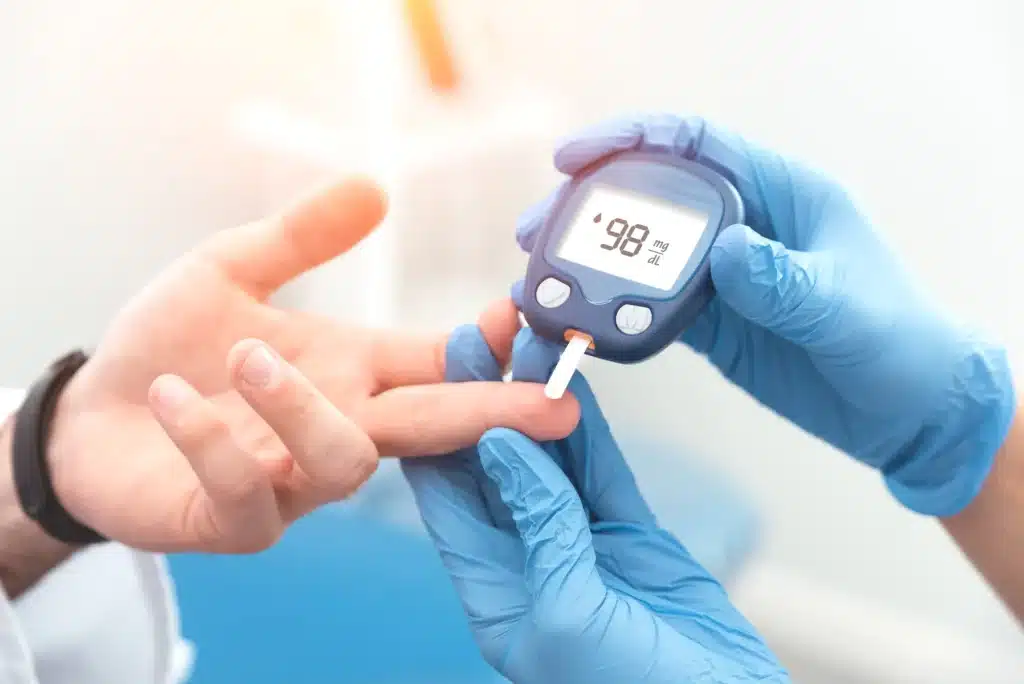Are there different medications for different types of diabetes?
Diabetes, a prevalent condition affecting millions worldwide, presents in two distinct forms. The treatment for both types involves various medications, which may leave you wondering about the most appropriate option or questioning your prescribed treatment. This comprehensive guide provides an extensive list of commonly prescribed diabetes medications. We’ll also explore the complexities of diabetes, highlighting key differences between type 1 and type 2 diabetes, while examining potential causes of the condition.

What is diabetes?
Diabetes is characterized by abnormally high blood sugar levels. This condition occurs in two primary forms: type 1 and type 2 diabetes, which we’ll examine in detail later. Blood sugar, derived from the food we eat, serves as the body’s main energy source. Insulin, a hormone produced by the pancreas, regulates blood sugar by facilitating glucose transfer into cells for energy. Diabetes develops when the body produces insufficient insulin or stops producing it altogether.
What medications are available for diabetes?
Diabetes treatment has evolved significantly, offering improved accessibility and effectiveness. A wide range of diabetes medications is available by prescription.
Insulin injections remain the primary treatment, mainly for type 1 diabetes, though some type 2 patients may also require them. A revolutionary advancement is the insulin pump – a compact device with a needle and electronic component that delivers insulin as needed. This smart device continuously monitors blood sugar and administers insulin automatically, eliminating manual monitoring and injections. While promising, these treatments aren’t widely accessible yet, with eligibility restrictions and significant costs for purchase and maintenance.
How does diabetes develop?
Diabetes occurs in two distinct forms, each with unique characteristics, but both share the same fundamental cause: inadequate insulin production. Insulin enables glucose from food to convert into cellular energy. Diabetes can lead to serious health complications including:
- Cardiovascular disease
- Kidney disease
- Vision impairment
- Nerve damage
- Foot complications
- Stroke
- Dental issues
These conditions range from severe to potentially life-threatening, making it crucial to stay current with diabetes treatments, regardless of your diabetes type.
What is pre-diabetes?
Pre-diabetes represents a critical window to prevent type 2 diabetes. It occurs when blood sugar levels are elevated but not high enough for a type 2 diagnosis. Left unaddressed, pre-diabetes can lead to serious health issues including type 2 diabetes, heart disease, and stroke. However, this stage offers an opportunity to reverse course through lifestyle modifications. Regular exercise and dietary changes can effectively prevent progression to type 2 diabetes.
What is Type 1 diabetes?
Type 1 diabetes is an autoimmune condition present from birth, though symptoms may appear at any life stage. While most commonly diagnosed in childhood or adolescence, it can develop at any age. There’s a genetic component, but inheriting the genes doesn’t guarantee development of the condition. Environmental triggers or illnesses may activate type 1 diabetes in genetically predisposed individuals.
What is Type 2 diabetes?
Type 2 diabetes accounts for about 90% of diabetes cases, making it significantly more common than type 1. Unlike type 1, it typically develops later in life and is strongly associated with lifestyle factors including physical inactivity, poor diet, and family history. Excess weight is a major risk factor, with many cases progressing from pre-diabetes. This transitional phase offers an opportunity to reverse the condition through lifestyle changes.
How to manage life with diabetes?
Receiving a diabetes diagnosis – whether type 1 or type 2 – naturally raises concerns about daily management. Fortunately, modern treatments have dramatically improved quality of life for diabetics. While management was challenging in the past, innovations like insulin pumps have simplified disease control. Consider these practical management strategies:
- Dietary adjustments: Eliminate sugary foods and beverages, reduce carbohydrates, and maintain balanced nutrition
- Regular physical activity: Work with your doctor to develop an appropriate exercise plan
- Medication management: Maintain proper medication storage and ensure adequate supplies
- Alcohol precautions: Avoid drinking on an empty stomach and monitor blood sugar before bedtime after consumption
Implementing these strategies can significantly improve diabetes management and overall wellbeing.
Where to buy diabetes medication online?
If you’ve been prescribed diabetes medication, you can likely order it conveniently from MedsBird. Browse our selection of diabetes treatments to find what you need. You can purchase using an existing prescription or complete an online consultation with an independent prescriber through MedsBird. Following approval, you’ll receive a prescription and can easily obtain your medication through our platform.
Sources:
https://www.sciencefocus.com/tag/diabetes/
https://www.nhs.uk/conditions/diabetes/







